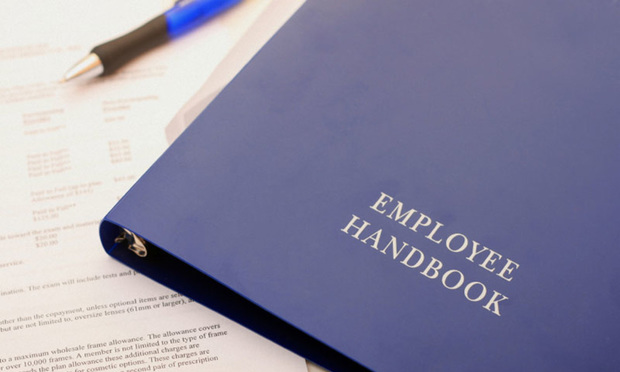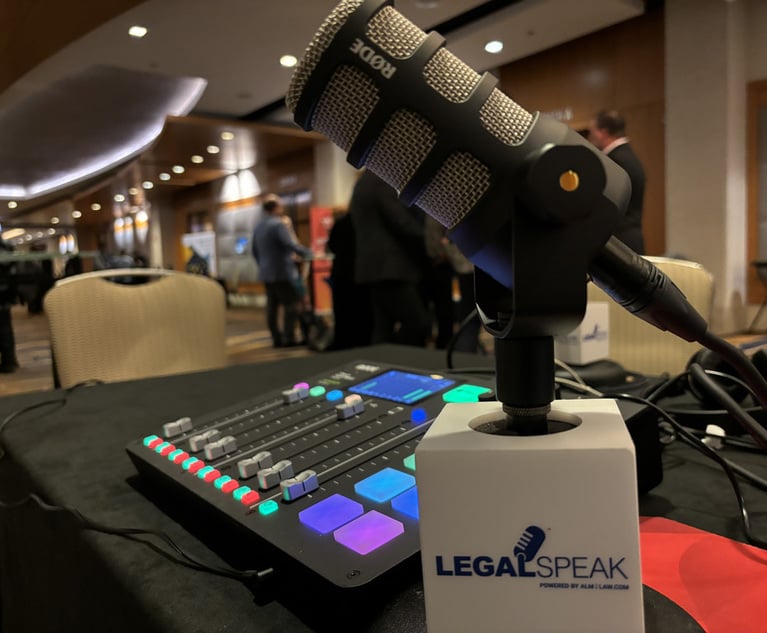In the landmark employment law case, Aguas v. State of New Jersey, 220 N.J. 494 (2015), the New Jersey Supreme Court delineated two important factors in determining an employer’s vicarious liability in workplace sexual harassment negligence-based claims by employees, as well as presenting possible defenses for the employer to use in such claims. The first was the state’s adoption of the Faragher-Ellerth affirmative defense standard, in response to vicarious liability, in an effort to defend such claims. The Faragher-Ellerth defense is recognized as a defense against harassment claims under Title VII of the Civil Rights Act of 1964. Under Faragher-Ellerth, the employer in a hostile work environment sexual harassment case may assert as an affirmative defense to vicarious liability, that it “exercised reasonable care to prevent and correct promptly any sexually harassing behavior and that the plaintiff employee unreasonably failed to take advantage of any preventive or corrective opportunities provided by the employer or to avoid harm otherwise,” provided that the employer has not taken an adverse tangible employment action against the plaintiff employee. Faragher v. City of Boca Raton, 524 U.S. 775, 778 (1998); Id. at 524 U.S. 807-808. The result of this holding is to place the burden on employers to enact well-drafted anti-harassment policies and procedures. In addition, the jurisprudence makes clear that employees who believe that they are the victims of harassment are encouraged to utilize the employer’s policy and procedures by promptly reporting allegations of harassment through the appropriate and delineated channels. The second significant piece of jurisprudence is establishing a definition of who is a “supervisor,” when an employee is accused of hostile work environment sexual harassment for vicarious liability purposes, under the New Jersey Law Against Discrimination (LAD). The court opined that the “allegedly harassing employee is the complainant’s supervisor if that employee had the authority to take or recommend tangible employment actions affecting the complaining employee, or to direct the complainant’s day-to-day activities in the workplace.” Aguas v. State of New Jersey, 220 N.J. at 500. The New Jersey Supreme Court in the recent case of Griffin v. City of East Orange, 225 N.J. 400 (2016), in analyzing a vicarious liability claim for sexual harassment, listed several critical factors to consider which are rooted in the Aguas opinion, including: formal anti-harassment policies; informal and formal complaint procedures; anti-harassment training that is mandatory for management and available to all employees; procedures to monitor the effectiveness of said policies; and an unequivocal commitment from the top down to practice its procedures and to not tolerate such behavior. The Supreme Court gave credence to the testimony of a high-level manager in this case who stated that the city had effective anti-harassment procedures and that the city was committed to effective remediation of such conduct. Following the reasoning in Aguas, the Appellate Division clearly stated the importance of anti-harassment policies in the case of Edries v. Quick Chek Food Stores. The court held that the employer took appropriate remedial actions to eliminate sexual harassment and discrimination at work. The court opined that the employer tried to eliminate or remediate sexual harassment claims based on the facts that the employer had enacted proper workplace policies which prohibited harassment and discrimination on the job; the employer put in place easy to follow complaint procedures for a potential victim to report such conduct; the employer implemented and actually utilized investigative procedures following allegations of harassment and discrimination; and the employer had disseminated, informed and trained their employees on said policies and procedures. Edries v. Quick Chek Food Stores, No. L-1053-13 (N.J. App. Div. Jan. 20, 2017). In another important Appellate Division case, Smith v. Hutchinson Plumbing Heating Cooling, the court also relied heavily on the Aguas holding in its opinion, which evaluated a plaintiff’s claim for hostile work environment harassment based on religion. In this case, the Appellate Division reversed summary judgment in favor of the employer, opining that although the employer had an anti-harassment and anti-discrimination policy, the policy was incomplete and unclear. In addition, the court stated that the policy in practice was not squarely effective because the human resources representative admitted that the company never provided any employee training on the anti-harassment and anti-discrimination policy. The court stated that, “defendant’s proof of lack of training on the policy put its effectiveness in issue.” Smith v. Hutchinson Plumbing, No. L-0992-12 (N.J. App. Div. March 15, 2015). In another Appellate Division case, Dunkley v. S. Coraluzzo Petroleum Transporters, 441 N.J. Super. 322 (App. Div. 2015), the court granted summary judgment in favor of the employer on plaintiff’s hostile work environment claim based on race and the court relied again on the judicial guidance provided by the Aguas case in its analysis. After the court examined the pertinent facts that were presented, the court opined that it was critical that the company had an anti-harassment written policy in its handbook that spelled out formal and informal mechanisms to register complaints of harassment and discrimination at work. In addition, the court found it pertinent that the employer provided training on such policies to ensure understanding and compliance by all. Finally, it was evident to the court that the employer had made a formal commitment to provide a harassment-free work environment, as the subject managers proactively contacted the complainant sua sponte, although the complainant herself did not take advantage of the organization’s complaint procedure. As such, the court found the above factors critical in its analysis. The New Jersey District Court, in Abreu v. State of New Jersey, No. CV 14-16 (D.N.J. Dec. 29, 2015), again relied on the Aguas standard. In this case, the plaintiff moved to compel discovery of several documents, including those relating to confidential internal investigations rooted in harassment and discrimination claims. In the subject case, the plaintiff alleged several claims of unlawful retaliation under the New Jersey Conscientious Employee Protection Act and hostile work environment harassment based on race, ethnicity, national origin and color under the New Jersey LAD. The purpose for the discovery request was to prove the employer’s vicarious liability for said claims. The court, in its opinion, was guided by Aguas and stated that an important factor in determining employer liability under a negligence theory is whether or not an employer has drafted and enforced a complete, remedial and functional anti-harassment policy. It further quoted the LAD’s mandate that such policies and procedures “have been implemented in such a way as to reflect an unequivocal commitment from the top management that [the employer’s stated intolerance for workplace harassment] is not just words, but backed up by consistent practice.” Hargrave v. County of Atlantic, 262 F. Supp. 2d 393, 431 (D.N.J. 2003). Lastly, in another recent decision based on the Aguas principles, the court held in Jones v. Dr. Pepper Snapple Group, No. A-2314-13 (N.J. App. Div. Aug. 3, 2015) that an employer should exercise reasonable care to prevent and remediate harassing behavior by training and providing an employee handbook to everyone, even a temporary employee. The court relied on the Aguas case and opined that if the temporary employee had been made aware of such a policy, the harassment could have been mitigated or prevented in this particular case, and that the complainant would be aware of proper procedures and remedies. It is clear the purpose behind the jurisprudence in Aguas and its predecessors is to further advance the clear legislative intent behind the New Jersey LAD which is to “root out the cancer of discrimination.” Cicchetti v. Morris Cnty. Sheriff’s Office, 194 N.J. 563, 588 (2008). Following these cases, the courts have given clear, well-reasoned guidance to employers and employees alike in providing prudent steps that must be taken in an effort to create and maintain a harassment and discrimination-free work environment. Employers must draft and disseminate clear, user-friendly harassment and discrimination prevention policies to all managers, employees and even temporary workers. All managers, employees and temporary workers must be trained on harassment and discrimination prevention. The policies must contain formal and informal complaint procedures to be used to report such conduct. There should be a mechanism in place to monitor the effectiveness of such policies. The entire organization, including high-level management, should make an unequivocal commitment to put these policies into practice and no manager or employee should tolerate such behavior. It should be shared with the employees that the consequences of violating such policies may include the termination of employment. Organizations must create an environment in which employees feel comfortable complaining of such harassment or discrimination without fear. That being said, employees must utilize the complaint procedures for reporting claims of harassment and discrimination. Organizations have an obligation to take all complaints seriously and to remediate all forms of harassment and discrimination by taking appropriate action, including investigating all complaints by a skilled and neutral investigator. An appropriate employer response may include: employee discipline, termination, conducting an internal investigation, coaching, counseling and suspension. Thus, based on the cases that followed Aguas, it is clear that employers have been given guidance in order to prevent and correct harassment in the workplace. It is now up to employers’ respective human resource departments and their counsel to ensure that employers are effectively implementing their anti-harassment policies and are proactive in their approach in order to prevent larger claims from arising in the courtroom.
Croddick is counsel with Davison, Eastman, Muñoz, Lederman & Paone in Freehold. She focuses her practice on employment and labor matters. Chabarek is a partner with the firm, whose practice is devoted to labor and employment law as well as the representation of public entities.







